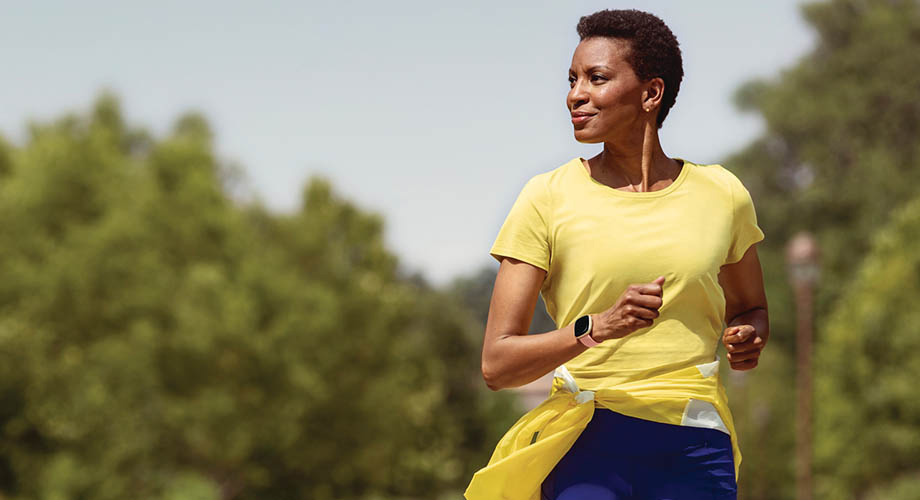Scripps Research is distributing 10,000 Fitbit devices to the study’s participants over the next several months.
LA JOLLA, CA—A new study led by scientists at Scripps Research is leveraging the power of wearable technology to transform the future of medical research.
The study is part of the All of Us Research Program, a monumental effort by the National Institutes of Health (NIH) to engage one million people from across the United States in building one of the most diverse health databases in history. As part of this consortium, Scripps Research is integrating multiple mobile health technologies into the program, as well as helping manage the enrollment and retention of participants.
Over the coming months, the program will provide 10,000 Fitbit devices—either the Fitbit Charge 4™ tracker or Fitbit Versa 3™ smartwatch—at no cost to select study participants who have engaged in other research activities, such as completing online surveys and agreeing to share electronic health records with All of Us. The goal of the one-year study is to learn more about how people engage with wearable devices to help inform future research. Additionally, the virtual clinical study will generate a data set that presents a unique opportunity for the research community to explore the relationship between physical activity, heart rate, sleep and other health metrics, along with health outcomes as part of the broader All of Us program.
“This is the first time All of Us is distributing devices to participants,” says Julia Moore Vogel, PhD, director of the program’s Participant Center at Scripps Research. “Our goal is to better understand how participants engage during research studies in order to continually improve user experience and participation. We also expect to learn more about how wearable data, including health metrics tracked by a Fitbit device, may inform the personalization of healthcare.”
Scientists at Scripps Research have been studying the utility of consumer wearables in biomedical research and healthcare for a decade, partnering with companies such as Fitbit to validate how such technologies can be used to inform and improve healthcare.
“Our past collaborations with Scripps Research have generated valuable information about early detection of flu and COVID-19. We hope that the data collected through All of Us is used to power discoveries about many more conditions and the potential role wearables can play in disease detection, prevention and treatment,” says John Moore, MD, PhD, medical director, Fitbit Health Solutions at Google.
Data from the study will continue to build on the existing work of the All of Us Research Program, with the long-term goal of revolutionizing precision medicine for all.
“We are excited to get these Fitbit devices out to participants and begin gathering wearable data from a diverse group of people,” Moore Vogel says. “This information will help accelerate a transformation of healthcare, providing new insights that will enable the tailoring of prevention and treatment strategies to the individual.”
For more information about the All of Us Research Program, including how to participate, visit joinallofus.org/go.



